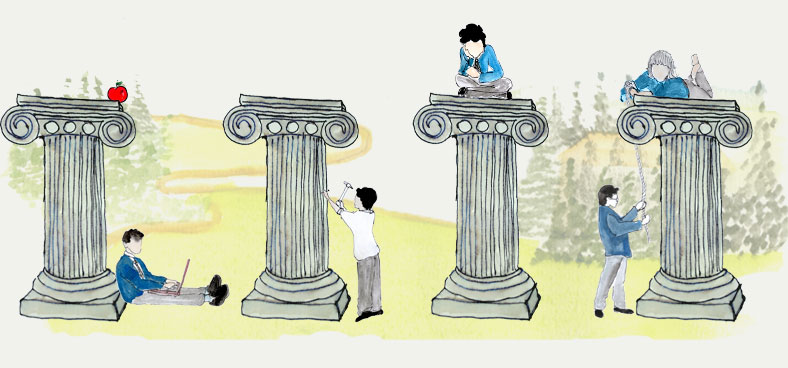
The four pillars of
learning are fundamental principles for reshaping education
The school and the world
A school cannot exist in isolation but needs to be aligned to the broader goals of society and human development. The UNESCO report*, brought out in the late ’90s, has articulated with clarity what the school has been practicing from its inception in the ’60s.
The four pillars of learning
Learning to know to provide the cognitive tools
required to better comprehend the world and its
complexities, and to provide an appropriate and
adequate foundation for future learning.
Learning to do to provide the skills, that would enable individuals to effectively participate in the global economy and society.
Learning to be to provide self-analytical and social skills, to enable individuals to develop to their fullest
potential psycho-socially, affectively as well as
physically, for an all round ‘complete person’.
Learning to live together to expose individuals, to the values implicit within human rights, democratic
principles, intercultural understanding, respect and peace at all levels of society and human relationships to enable living in peace and harmony.
*’Learning: The Treasure Within’, Report to UNESCO by the International Commission on Education for the Twenty-first Century.


